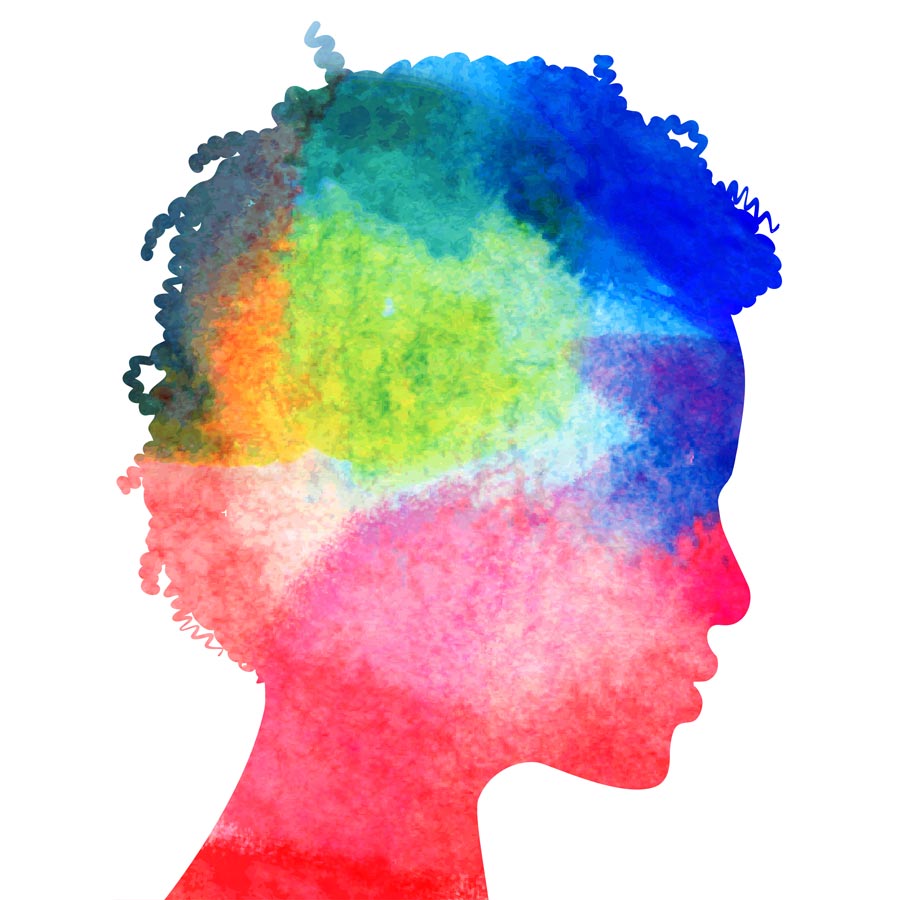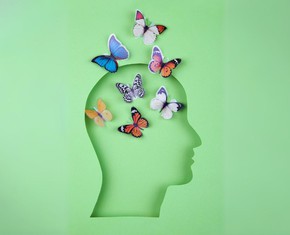The views expressed in our content reflect individual perspectives and do not represent the authoritative views of the Baha'i Faith.
I was struck with a severe mental illness—rapid cycling bipolar disorder, Type I—at the age of 51.
Most people who get bipolar—which used to be called manic depression—have their first symptoms as teens or young adults, and have to try to keep it under control for their entire lives. In the ten years since my mental illness occurred, I have learned a thing or two about myself, mental illness in general, and its impact on me spiritually.
Thankfully I’m in recovery now, but bipolar disorder rudely interrupted every aspect of my life. I could no longer function within my family, at work, among friends, or meet my volunteer commitments. Neither could I function as a spiritual being. Prayers? No desire. Meditation? Couldn’t begin to focus. Attend spiritual gatherings? No way; I either felt too manic to sit still or too depressed to leave the house.
A Baha’i Perspective on Spirituality and Mental Health
Although this quotation from the Baha’i teachings does not refer to the extreme mood swings that characterize bipolar disorder and major depression, it does address the impact of our fluctuating moods on our everyday functioning:
Joy gives us wings! In times of joy our strength is more vital, our intellect keener, and our understanding less clouded. We seem better able to cope with the world and to find our sphere of usefulness. But when sadness visits us we become weak, our strength leaves us, our comprehension is dim and our intelligence veiled. The actualities of life seem to elude our grasp, the eyes of our spirits fail to discover the sacred mysteries, and we become even as dead beings. – Abdu’l-Baha, Paris Talks, pp. 109-110.
 My disorder soon made me feel more and more alienated, not only from my Baha’i friends and community members, but from my previously deeply-held spiritual beliefs. The strong, steady spiritual light burning in my soul withered to a weak, sputtering flicker, and then seemed virtually extinguished for a while. I was lost and overwhelmed in the mangled, strangled neuronal nightmare that bipolar had caused in my brain. It certainly felt like I had fallen into a spiritually weakened state.
My disorder soon made me feel more and more alienated, not only from my Baha’i friends and community members, but from my previously deeply-held spiritual beliefs. The strong, steady spiritual light burning in my soul withered to a weak, sputtering flicker, and then seemed virtually extinguished for a while. I was lost and overwhelmed in the mangled, strangled neuronal nightmare that bipolar had caused in my brain. It certainly felt like I had fallen into a spiritually weakened state.
But even if all that was going on in my brain at the time, what was the actual state of my soul? Fortunately, despite my subjective feelings of spiritual alienation, apparently my soul was protected throughout the ordeal:
Know thou that the soul of man is exalted above, and is independent of all infirmities of body or mind. That a sick person showeth signs of weakness is due to the hindrances that interpose themselves between his soul and his body, for the soul itself remaineth unaffected by any bodily ailments …. Consider again the sun when it is completely hidden behind the clouds. Though the earth is still illumined with its light, yet the measure of light which it receiveth is considerably reduced. Not until the clouds have dispersed, can the sun shine again in the plenitude of its glory. Neither the presence of the cloud nor its absence can, in any way, affect the inherent splendor of the sun. The soul of man is the sun by which his body is illumined, and from which it draweth its sustenance, and should be so regarded. – Baha’u’llah, Gleanings from the Writings of Baha’u’llah, pp. 153-154.
In other words, although I myself could not appreciate the inherently healthy state of my soul at the time, it remained entirely unaffected by my mental illness and by my inability to nurture it in the ways I normally would have through prayer, meditation, acts of service, doing work in the spirit of worship, and so on.
What a relief!
More recent assurance about the difference between mental illness and spiritual weakness comes from the Universal House of Justice, the international governing body of the Baha’i Faith:
… mental illness is not spiritual, although its effects may indeed hinder and be a burden in one’s striving toward spiritual progress. – From a letter written to an individual Baha’i, June 15, 1982.
How to Reconcile Spirituality and Mental Health
Friends, if any of you reading this currently struggle with a mental health challenge, or if a loved one does, please be assured: mental illness categorically does not mean spiritual weakness! Just like any bodily malady, mental illness means simply dealing with an adversity—or in some cases a true calamity—that will severely test us and those around us.
Just remember that sun behind the clouds: it’s always shining there; it will surely reappear. Until it does, let’s try to apply this spiritual prescription:
If sorrow and adversity visit us, let us turn our faces to the Kingdom and heavenly consolation will be outpoured.
If we are sick and in distress let us implore God’s healing, and He will answer our prayer.
When our thoughts are filled with the bitterness of this world, let us turn our eyes to the sweetness of God’s compassion and He will send us heavenly calm! If we are imprisoned in the material world, our spirit can soar into the Heavens and we shall be free indeed! – Abdu’l-Baha, Paris Talks, p. 111.
You May Also Like
Comments

















Years ago, I myself tended to resist such a diagnosis and rebuke the medication. My wife reminded me about my duty as a Baha'i to obey Baha'u'llah's teachings as regards to the help we should seek when our health is compromised. You mentionned beautiful and inspiring writings . They feed the soul even when the 'outer being' is weakened.
I am glad I met you in your ''good'' days; my image of you in my heart is not diminishing in any way - even enhanced.
Fill a bathtub with warm prayers and immerse yourself in that rejuvenating ...fountain of divine grace.